By Liam van Eeden , Maggie Shui and Zoe Madden-Smith
Queer people are everywhere, not just big cities. And it’s about time we talked about how LGBTTQIA+ people can thrive outside of the major city centres.
Growing up queer in rural Aotearoa can be tough. But this doesn’t mean rainbow communities can’t flourish in regional centres.
In Re: News’ new docuseries Queer Academy, we explore this idea and the importance of finding like minded people, no matter where you live.
We spoke to a bunch of queer people from across the motu about their experience living in a small town, this is what they had to say:
Annie and Sinalei both she/her
?Heretaunga/Hastings
Annie is fa'afafine and grew up in Samoa. In 2016, she moved to Auckland. She later moved to Hastings where she founded Teine o le Apu, a group of Pasifika rainbow people that formed just over a year ago.
Sinalei is a member of Teine o le Apu.
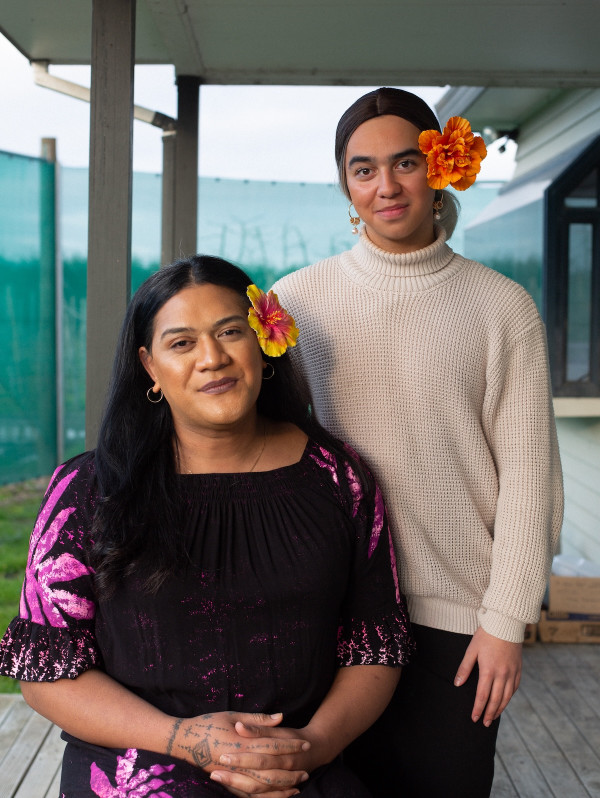
Caption: Annie (left) and Sinalei (right)
Annie: Being in a small town [means LGBTTQIA+ people] develop stronger relationships with each other.
Lately, the support that we've been getting from the community and our local Pasifika people has been amazing. I never expected such support from our people.
When I was living in Auckland, I felt like a lot was missing. The nightlife was big and I was getting carried away. I was starting to lose the standards and values that I was brought up with.
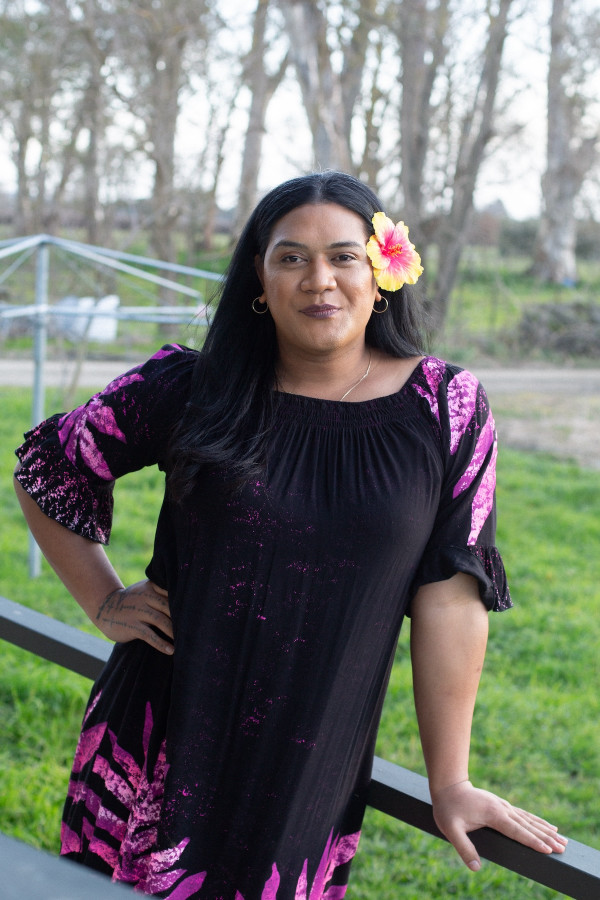
When I came to Hastings, I was only meant to be here for a two-day getaway and then return back to Auckland, but something was really bothering me to stay here.
At the time, there was no group or no organisation for [people like us] to be able to go to and have that connection.
People really don't expect these communities from small towns. It's always expected in the big cities. But in saying that, it all depends on the work that you do within the town to earn respect and to be able to build that relationship with the community.
Sinalei: I feel like our community of sisters know each other very well. We do a lot of bonding together as sisters. If we lived in a bigger city, maybe it would be more busy [and harder to make that connection].
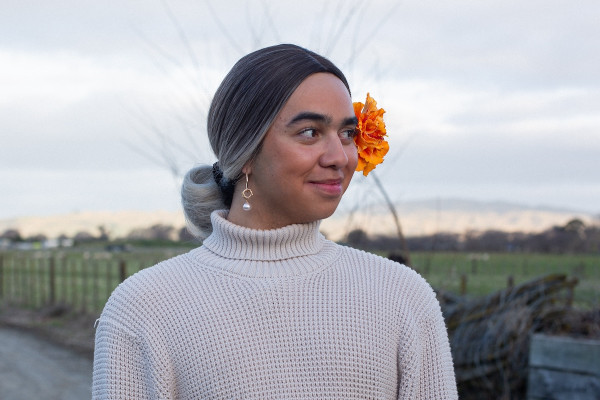
I was born in Hawke's Bay and then moved to Melbourne. When I found out I was moving back to Hawke’s Bay, I didn't want to come. I was scared to come here and be bullied. But I didn't expect there would be this much of a community here and sisters that I can relate to. So ever since moving here, I have loved it.
Once I moved to Hastings, I've come out a bit more. I wasn't as womanly when I was still living in Melbourne.
Sam Duckor-Jones he/him
?Māwhera/Greymouth
Sam Duckor-Jones is a Wellington-born artist who moved to Māwhera/Greymouth –– a small town on the West Coast of the South Island –– to transform an old Anglican church into a bright pink queer safe haven.
He named his project Gloria of Greymouth and it’s all about the celebration of small town queer joy.
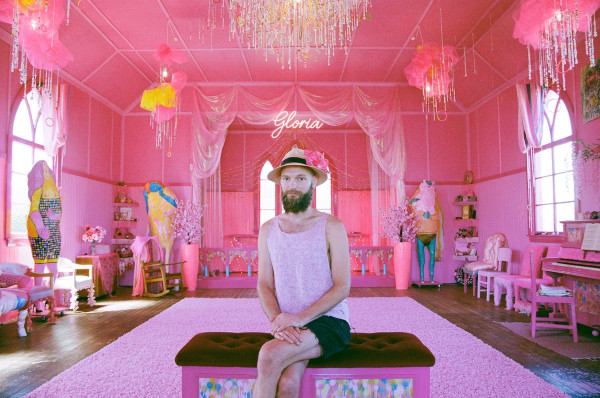
Sam: The kaupapa of Gloria of Greymouth is a sort of celebration of small town and rural queerness. Because the queers are everywhere and we shouldn't have to escape to Sydney in order to be our best selves.
Here in Greymouth, there's a really vibrant rainbow youth scene and I hope that by having something like Gloria in the back paddock, they don't have bad feelings about growing up queer in Greymouth.
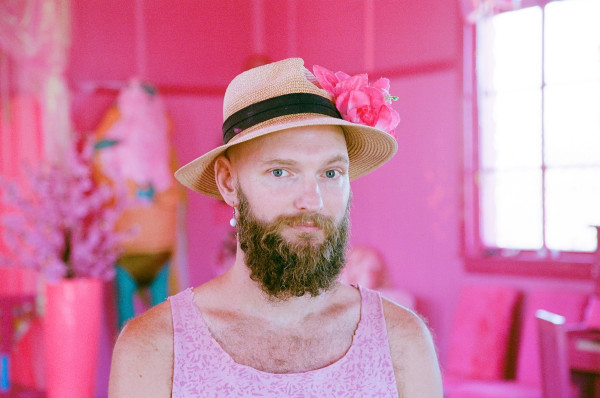
Growing up in Wellington, it took me a really long time to find queer friends and people who had a similar experience as me. It took me a long time to learn that other queer people weren't just for kissing; that you could actually be friends with them.
The first time that I really felt like I had some kind of queer community was … when I was 29 and I moved to Featherston in South Wairarapa.
I have a feeling that it doesn't matter the size of the town you move to but if you move somewhere new, you suddenly feel a little bit looser and freer to express your true self.
So even though I had moved to conservative Wairarapa, I was like, haha, here I am. Take that lefty liberal Wellington!
If I hadn't moved to small town New Zealand, my life would be a lot smaller. Yeah, it got a lot bigger when I left [the big city].
Jayden Allen he/him
?Ahuriri/Napier
Being queer in a small town isn’t always a positive experience. Jayden grew up in Napier and has dealt with his fair share of homophobia.
But even in Jayden’s case, there’s hope for small town queer folk.
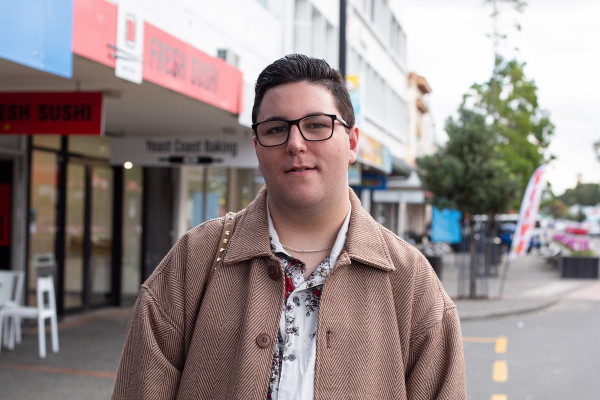
Jayden: Sometimes I've been walking on the street and people roll down their windows and yell out ‘Hey faggot’.
You get people who stare you down, don’t talk to you and say slurs under their breath. It is really damaging. It makes you feel like you’re not good enough, not accepted. It's hard trying to feel beautiful in a world that won't accept you for trying.
Napier definitely has a long way to come in regards to acceptance. The majority of the time, it is positive.
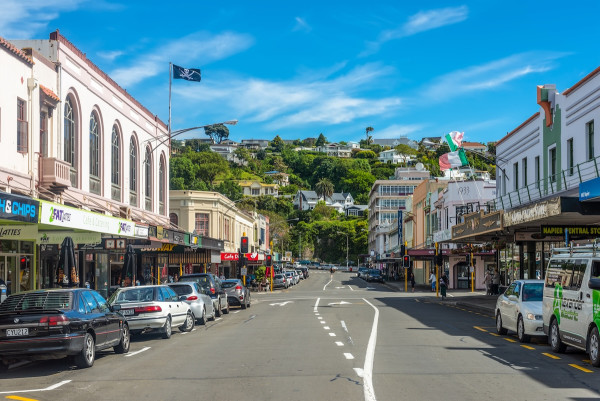
The first time I felt truly accepted was when I walked into the store where I work wearing makeup. And all of my colleagues said ‘Oh my God, you look so good’, even my guy colleagues said ‘Wow, you look so good today’. My workmates don’t tolerate any sort of hate or homophobia. That was really, really nice.
I’ve always had my best friend, Kayla. She’s been there for me through my worst moments.
She showed me how to do makeup. Sometimes we go to Glassons or Dotti and she would tell me, ‘Oh my God, you need to try this on’. She’s brought me out of my comfort zone, but in a good way. And I just love how she’s not afraid to stand up for me and show her support for me.
I’m really grateful that I had teachers that supported me. They didn’t care about me being gay, they just showed me the same support they would for any other person, which I was really grateful for.
They made school worth going to for me. Because school was my place where I could be myself for eight hours. I feel like if I didn’t have that in my life then, I would have lost it years ago.
I grew up in the Mormon church. Being gay and Mormon doesn’t really mix. But when I came out to my parents, my dad actually started clapping. And he said “I’m so grateful for you being honest”.
And I’ll never forget the time when I put on my makeup and I was about to go into town and my mum said “Can I have a photo with you son?” and I was like “Oh, sure”. Before that, she would say “I don't want to see it, I don't want to see it”. But that day when she asked me to take a photo with her, I was really shocked. So yeah, I found it really comforting that my parents are coming around to it.
I feel like a positive that’s come from growing up queer in a small town is having the opportunity to explore a bit more instead of diving straight into it. I’ve had to figure a lot of things out for myself. Learning, I’m always learning.
More stories:
How to be a responsible slut | Queer Academy
Watch the first episode of Queer Academy now.
How clothes help queer people find themselves | Queer Academy
Watch the third episode of Queer Academy now.
Why trans healthcare is fucked and needs fixing | Queer Academy
Watch the fourth episode of Queer Academy now.